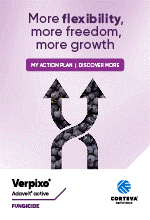Preparations for vintage 2020 are in full swing. But have you thought about your obligations, rights and responsibilities when employing your vintage staff?
That’s the message the South Australian Wine Industry Association (SAWIA) is sending to winegrape growers and wineries following a series of Vintage 2020 Briefings run across SA’s wine regions in November and early December.
“Our Vintage 2020 Briefings were designed to get the conversation started about key Industrial Relations issues that should be well planned leading into vintage,” said SAWIA business services manager Henrik Wallgren, who ran the sessions.
“For example, it’s important for mangers to refresh their knowledge of their obligations under the Wine Industry Award 2010 and the Fair Work Act 2009, which are most relevant during vintage. Vintage is a busy time and it’s important to plan now, not when the grapes start rolling in.”
Planning should include:
- How to roster and engage employees in the most cost-effective way during vintage;
- Who in the business is responsible for ensuring that migrant workers, including backpackers, have a legal right to work in Australia;
- When contractors can be used, how much they need to be paid and whether a labour hire licence is needed; and
- The relevant chain of responsibility obligations when produce and products are being transported.
“The Vintage 2020 Briefings highlighted the complexity associated with paying staff correctly and the detailed and technical rules in relation to overtime and shift work and penalties for weekend and public holiday work,” Henrik said.
“We demonstrated how easy it can be to make costly mistakes unless you have a thorough understanding of the Wine Industry Award 2010 and employment law more broadly.”
Henrik said common questions at the Briefings related to identifying which grade and associated rate of pay apply to what type of work/job in the wine industry, the rules surrounding meal breaks and the potentially serious financial implications to a business of not being aware of and complying with these meal break rules.
“The Briefings highlighted how having a detailed understanding of the Award enables a business to make smarter staffing and rostering decisions, which are more cost-effective. This includes understanding the potential benefits of shift work, when overtime is payable, maximum ordinary hours in a day, casual versus permanent employees, and the benefits and risks of piecework arrangements,” Henrik said.
“The Briefings also highlighted the importance of understanding the visa system when engaging migrant workers. In this respect, there were discussions on the uncertainty relating to the backpacker tax given a court case that has invalidated the backpacker tax in relation to certain nationals in specific circumstances.”
For further information about winery Industrial Relations issues contact SAWIA Business Services Manager Henrik Wallgren on (08) 8222 9277 or email [email protected]




















